
Ibri: The Hidden Gem of Oman
Nestled in the heart of Oman, Ibri offers a blend of rich history, stunning landscapes, and warm hospitality. This city is a lesser-known treasure, providing an authentic Omani experience far from the bustling crowds of the more famous destinations. Ibri is famous for its ancient forts and archaeological sites. The Ibri Castle stands as a testament to the city's historical significance and offers a captivating glimpse into the past. Nearby, the Bat Necropolis, a UNESCO World Heritage site, showcases an array of ancient tombs and settlements that date back to the Bronze Age. Nature enthusiasts will find plenty to admire in Ibri. The surrounding Al Hajar Mountains offer breathtaking views and opportunities for hiking and exploration. Wadi Damm is another natural wonder, featuring clear blue pools and dramatic rock formations that make it a perfect spot for a day trip. The local souqs in Ibri are not to be missed. Here, you can immerse yourself in the vibrant culture, sample traditional Omani cuisine, and shop for unique handicrafts. The friendly locals add to the charm, making your visit feel both welcoming and memorable.
Local tips in Ibri
- Visit Ibri Castle early in the morning to avoid the heat and crowds.
- Wear comfortable shoes for exploring the archaeological sites and natural trails.
- Carry water and snacks when hiking in the Al Hajar Mountains.
- Visit the local souqs for authentic Omani crafts and cuisine.
- Respect local customs by dressing modestly, especially when visiting religious or historical sites.
Ibri: The Hidden Gem of Oman
Nestled in the heart of Oman, Ibri offers a blend of rich history, stunning landscapes, and warm hospitality. This city is a lesser-known treasure, providing an authentic Omani experience far from the bustling crowds of the more famous destinations. Ibri is famous for its ancient forts and archaeological sites. The Ibri Castle stands as a testament to the city's historical significance and offers a captivating glimpse into the past. Nearby, the Bat Necropolis, a UNESCO World Heritage site, showcases an array of ancient tombs and settlements that date back to the Bronze Age. Nature enthusiasts will find plenty to admire in Ibri. The surrounding Al Hajar Mountains offer breathtaking views and opportunities for hiking and exploration. Wadi Damm is another natural wonder, featuring clear blue pools and dramatic rock formations that make it a perfect spot for a day trip. The local souqs in Ibri are not to be missed. Here, you can immerse yourself in the vibrant culture, sample traditional Omani cuisine, and shop for unique handicrafts. The friendly locals add to the charm, making your visit feel both welcoming and memorable.
When is the best time to go to Ibri?
Iconic landmarks you can’t miss
Ibri Bawadi Mall
Explore Ibri Bawadi Mall, your ultimate shopping destination in Oman with diverse brands, exciting dining options, and family-friendly entertainment.
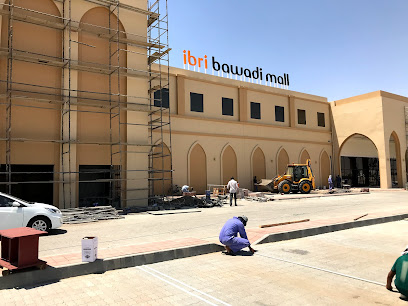
سوق عبري القديم
Experience the vibrant culture and local flavors at Ibri's Old Market, a must-visit destination for tourists exploring Oman.
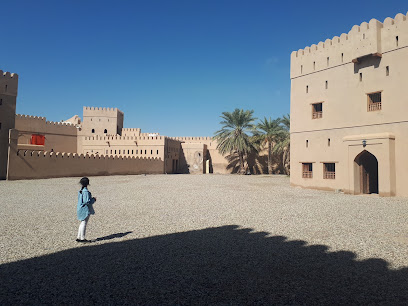
Al-Sulaif Fort | قلعة السليف
Explore Al-Sulaif Fort in Ibri, Oman – a historical landmark showcasing the rich heritage and captivating architecture of the Sultanate.
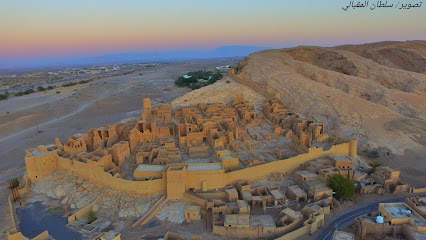
Al-Sulaif Mosque
Explore the serene beauty and rich cultural heritage at Al-Sulaif Mosque, a stunning landmark in Ibri, Oman.
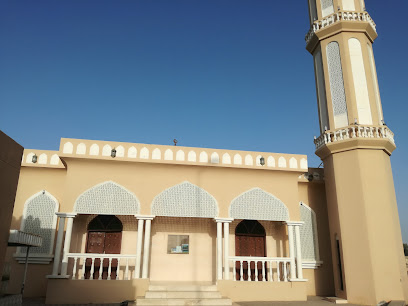
Ad Dreez ibri oman
Explore the enchanting Ad Dreez in Oman, a historical landmark that encapsulates the rich heritage and architectural beauty of the region.
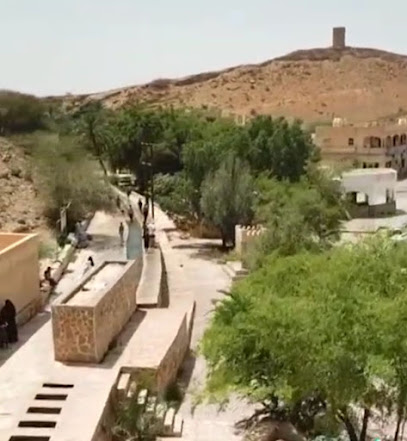
Bat Necropolis
Discover the ancient burial grounds of Bat Necropolis, a UNESCO site showcasing Oman's rich history and stunning landscapes.
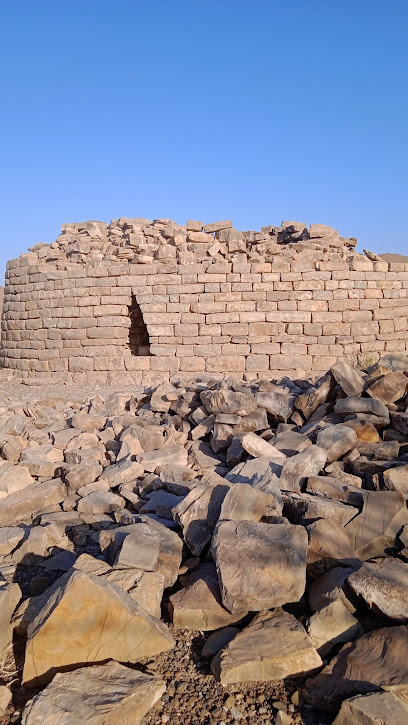
Archeological site of Baht,Ibri Oman
Discover the ancient marvels at the Archeological Site of Baht in Ibri, Oman, where history and culture intertwine in a breathtaking desert landscape.

Ibri castle
Discover the enchanting Ibri Castle, a historical mosque in Oman that showcases intricate architecture and a rich cultural heritage.

Unmissable attractions to see
Al Kasfah Hot Spring
Discover the rejuvenating beauty of Al Kasfah Hot Spring in Rustaq, Oman, a natural oasis for relaxation and wellness amidst stunning landscapes.
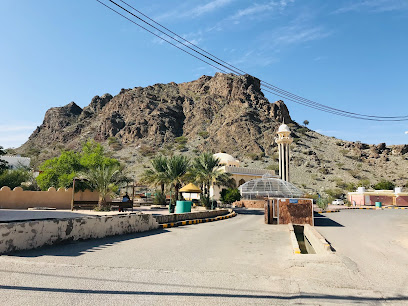
Buraimi National Park
Explore the breathtaking landscapes and diverse wildlife of Buraimi National Park, a serene retreat in the heart of Oman.
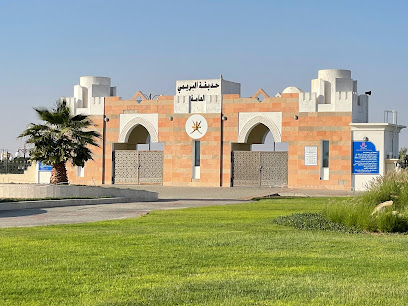
سوق عبري القديم
Discover the Old Arabic Market in Ibri, a vibrant hub of culture, crafts, and culinary delights in the heart of Oman.
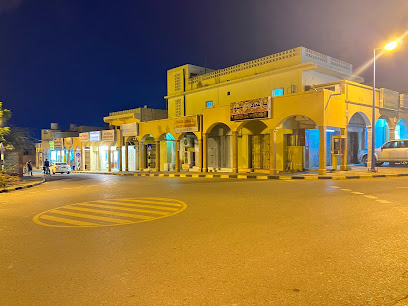
Al Sanger Park
Discover serenity and natural beauty at Al Sanger Park, a lush green retreat in Sohar, perfect for relaxation and outdoor activities.
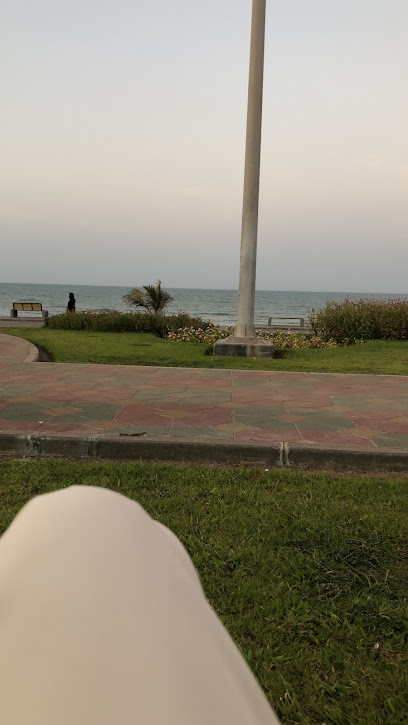
As Suwayq Castle
Discover the rich history and stunning architecture of As Suwayq Castle, a must-visit historical site in Oman, offering breathtaking views and captivating stories.
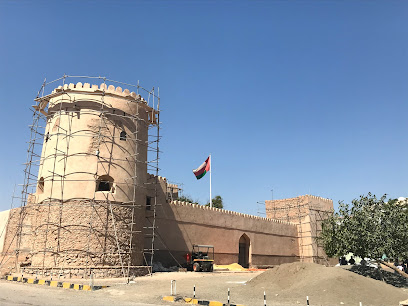
Ain Sahban
Discover the tranquil beauty of Ain Sahban, a must-visit nature retreat in Oman, perfect for relaxation and adventure alike.
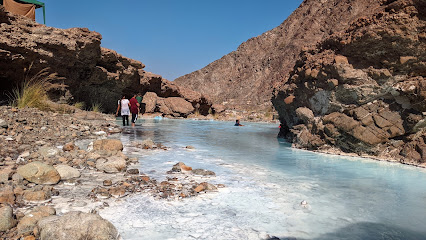
Al-Sulaif Fort | قلعة السليف
Explore the stunning Al-Sulaif Fort in Ibri, Oman - a historical landmark that offers breathtaking views and a deep dive into Omani heritage.
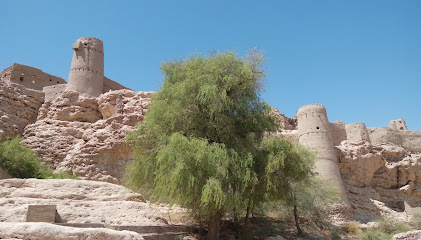
Sohar Gate
Explore Sohar Gate, a historic landmark in Oman that opens the door to the rich culture and heritage of Saham, perfect for every traveler.
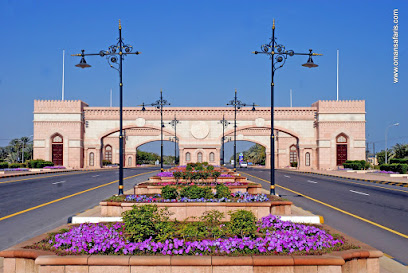
Kadh - Rustaq -mhafezh South Alebatnh- Sultanate of Oman
Explore the natural beauty and cultural richness of Kadh in Rustaq, Oman, a serene destination perfect for family outings and sightseeing.
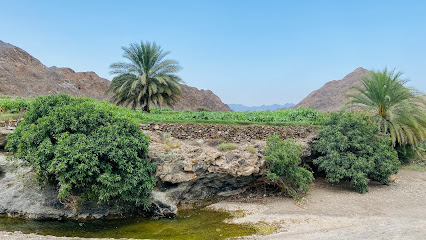
Al Khandaq Fort
Discover the rich history and breathtaking views at Al Khandaq Fort, a historical landmark in Al Buraimi, Oman.
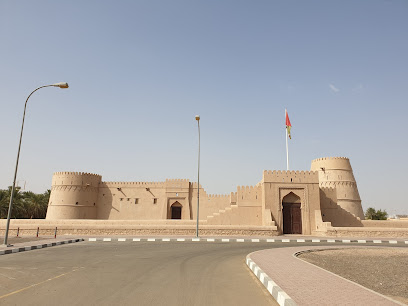
Saham Fort
Explore Saham Fort, a captivating castle in Oman, where history and stunning views merge to create an unforgettable travel experience.
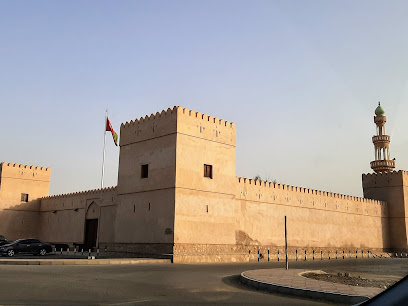
Wadi Muqniyat | وادي مقنيات
Explore the breathtaking landscapes and serene beauty of Wadi Muqniyat, a hidden oasis in Oman perfect for adventure seekers and nature lovers.
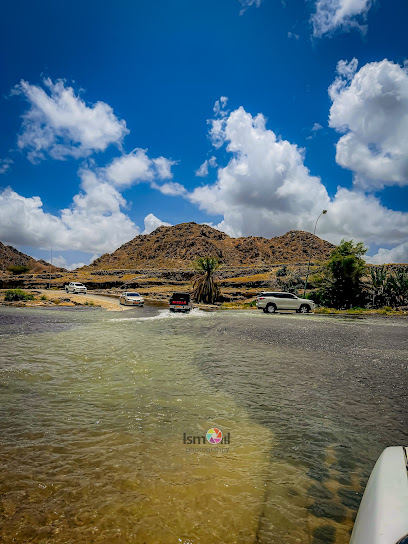
Large Baobab Tree | شجرة الماشوة العملاقة
Experience the grandeur of Zaymi's Large Baobab Tree, a monumental natural wonder embodying the spirit of the region's rich culture and ecosystem.
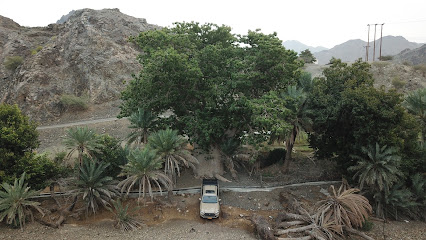
Rustaq City Gate
Explore the Rustaq City Gate, a captivating historical site in Oman that showcases the beauty of traditional Omani architecture and rich cultural heritage.
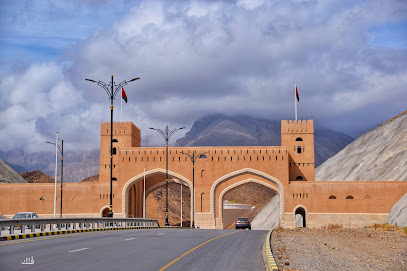
البوصلة قمة جبل شمس
Discover the breathtaking heights and stunning vistas of Jabal Shams, Oman’s Grand Canyon, perfect for adventure seekers and nature lovers.
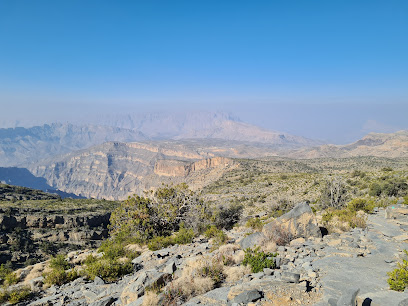
Essential places to dine
Aroos Damascus Restaurant & Grill
Discover authentic Middle Eastern cuisine at Aroos Damascus Restaurant & Grill in Ibri - where every meal is a flavorful journey.
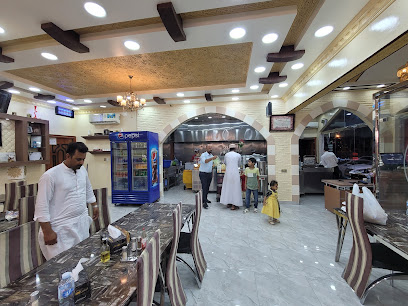
Pizza Hut
Enjoy delicious pizzas and fast food at Pizza Hut in Ibri - perfect for families and travelers seeking comfort food.
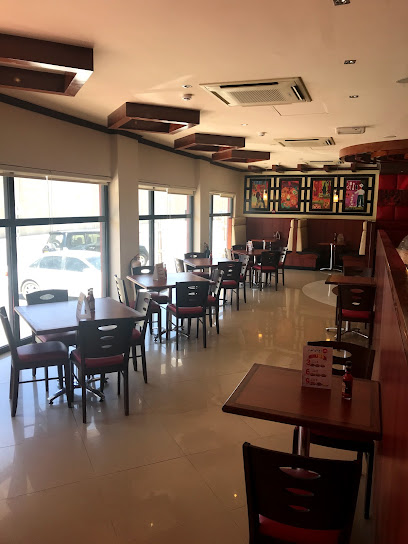
Noor Al Khaleej Restaurant
Experience authentic Omani cuisine at Noor Al Khaleej Restaurant in Ibri - where tradition meets flavor in every dish.
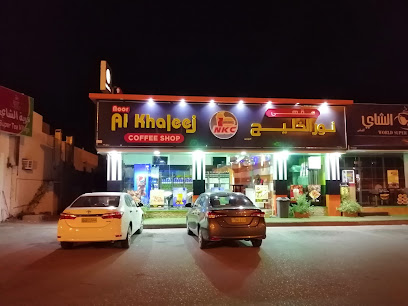
Arab World Restaurant مطعم العالم العربي
Experience authentic Middle Eastern cuisine at Arab World Restaurant in Ibri, where delicious flavors meet warm hospitality.
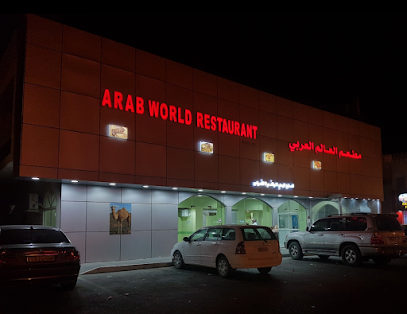
Turkish Restaurant
Savor authentic Turkish cuisine in Ibri's vibrant restaurant scene, where rich flavors meet warm hospitality.
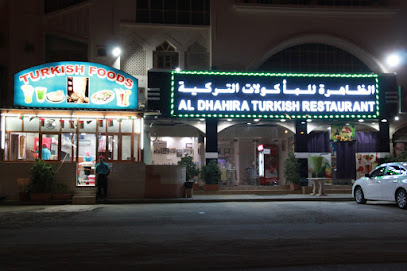
Domino's pizza Ibri دومينوز بيتزا
Experience delicious pizza perfection at Domino's Pizza in Ibri - where every slice is crafted with care.
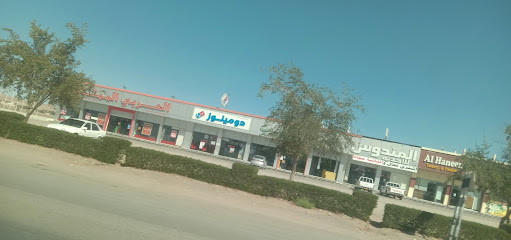
Jawharet Al Sham Coffee & Pastries
Savor authentic Omani flavors at Jawharet Al Sham Coffee & Pastries - where every bite tells a story.
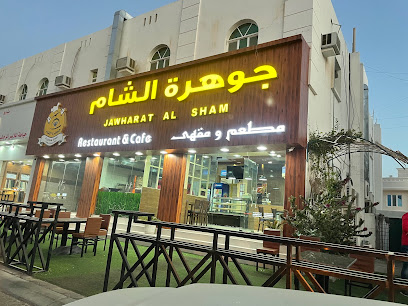
Al Riyan Kerala Restaurant
Experience the vibrant flavors of South Indian cuisine at Al Riyan Kerala Restaurant in Ibri - where tradition meets taste.
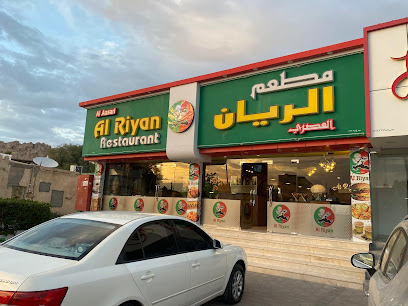
Burger 'O' Burger
Discover delicious burgers in Ibri at Burger 'O' Burger - a perfect blend of flavor and comfort.
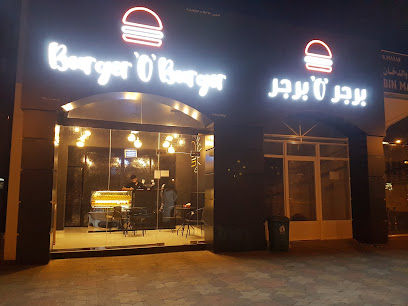
Almaslhi restaurant
Discover authentic Omani cuisine at Almaslhi Restaurant in Ibri – where tradition meets taste in every dish.
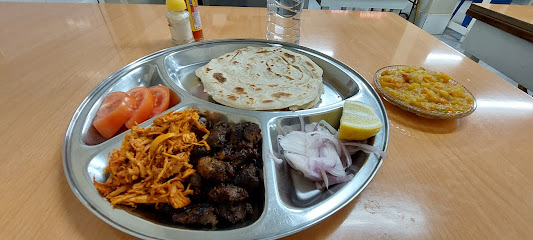
Al-Ghazal TURKISH Restaurant
Experience the authentic taste of Turkey at Al-Ghazal Turkish Restaurant in Ibri – where every meal is a celebration of flavor.
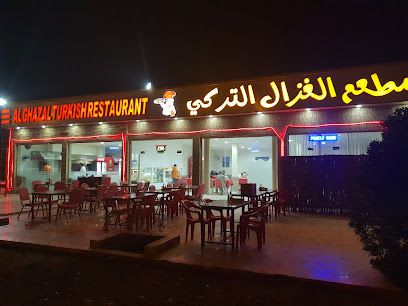
Azayem Food Restaurant Yemeni
Discover authentic Yemeni cuisine at Azayem Food Restaurant in Ibri—an unforgettable dining experience filled with rich flavors and cultural heritage.
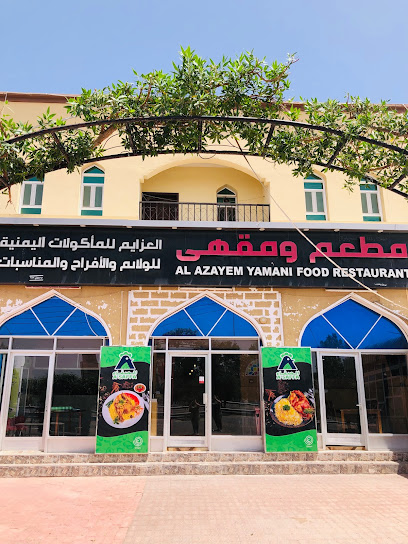
Bride Damascus Restaurant
Discover authentic Middle Eastern cuisine at Bride Damascus Restaurant in Ibri - where every meal tells a story.
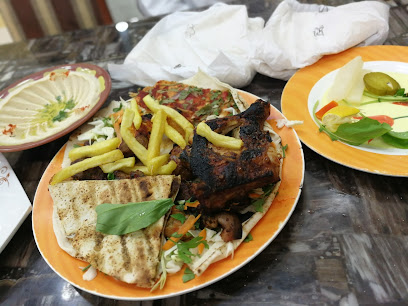
Al Majal Restaurant
Experience the rich flavors of Omani cuisine at Al Majal Restaurant in Ibri - where tradition meets taste.
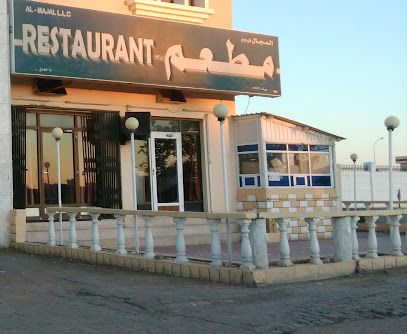
Shams Al Khaleej Restaurant
Discover authentic Omani cuisine at Shams Al Khaleej Restaurant in Ibri - where tradition meets flavor at affordable prices.
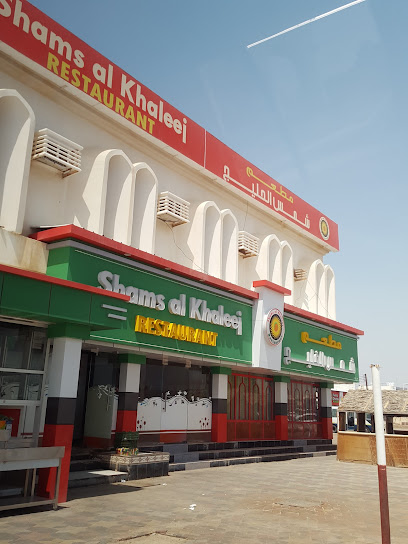
Markets, malls and hidden boutiques
LuLu Hypermarket - Ibri
Explore the diverse offerings of LuLu Hypermarket in Ibri, where local and international shopping comes alive with every visit.
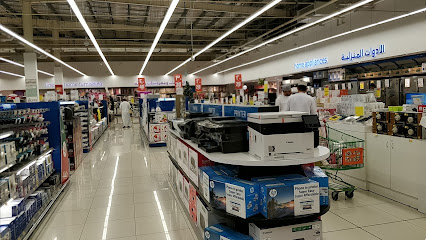
LuLu Hypermarket - Ibri Bawadi Mall
Experience the best of shopping at LuLu Hypermarket in Ibri Bawadi Mall, where variety meets convenience for tourists and locals alike.
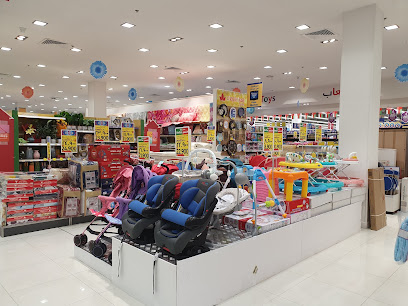
Max
Explore the latest fashion trends at Max, the premier clothing store in Ibri, offering stylish apparel for the entire family.
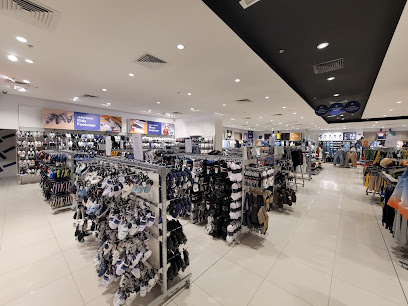
TIMEZONE WATCHS AL ARAQI AT LULU
Explore a premier watch store in Ibri offering a stunning collection and expert repair services, perfect for every watch enthusiast visiting the region.
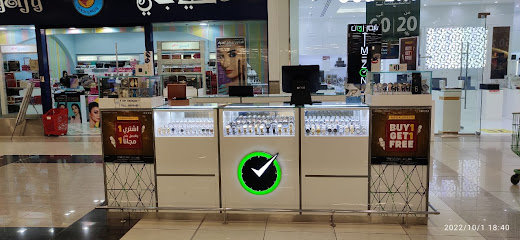
TIMEZONE WATCHES, IBRI RAMEZ SHOPPING CENTRE
Explore the finest collection of watches and sunglasses at Timezone Watches in Ibri's Ramez Shopping Centre, where quality meets style.
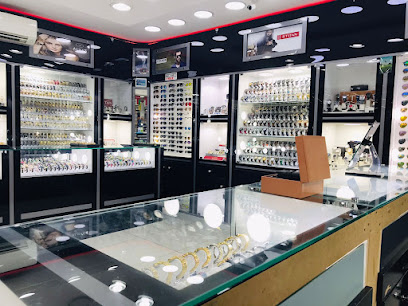
Ibri souq
Explore the vibrant Ibri Souq, a cultural hub of Oman's rich heritage, where local crafts and flavors come alive.
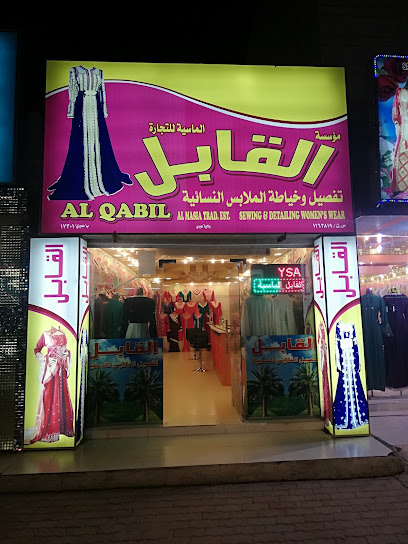
Ibri Gold Market
Explore the Ibri Gold Market, a vibrant jewel of Oman where exquisite gold jewelry and rich culture come together in a dazzling shopping experience.
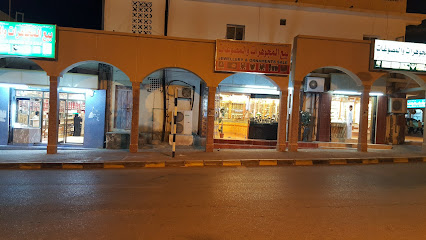
طلعة بر
Explore the essence of Omani craftsmanship at طلعة بر, your go-to home goods store in Ibri for unique souvenirs and elegant decor.
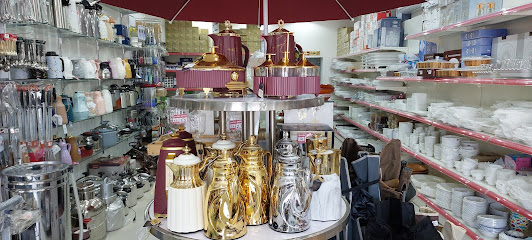
صوغاتي SOGATI اكسسوارات عبري
Explore the exquisite jewelry of SOGATI in Ibri, where tradition and modernity blend beautifully in every piece.
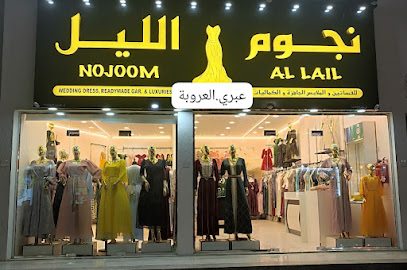
لافيش للعطور عبري - Lavish Perfumes Ibri
Discover the essence of luxury at Lavish Perfumes Ibri, where traditional aromas meet contemporary elegance in a captivating shopping experience.
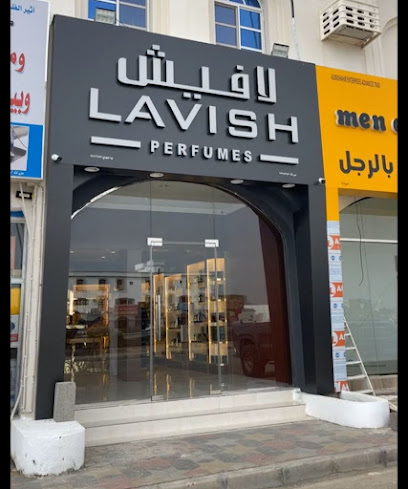
Dhaya Al Shams Al Masi Tailor Trad.
Experience exquisite craftsmanship and personalized service at Dhaya Al Shams Al Masi Tailor Trad., Ibri's premier women's clothing store.
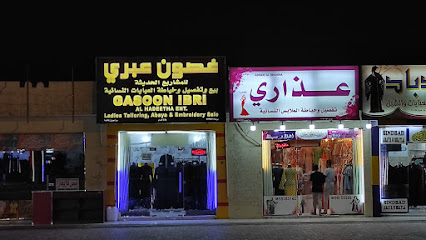
متجر ابتكر عالمك
Explore cutting-edge electronics at 'متجر ابتكر عالمك' in Ibri, where innovation meets quality and customer satisfaction.
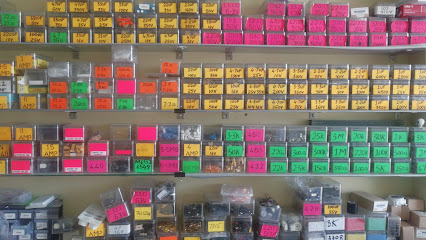
Mazoon Ibri محل مزون عبري
Explore Mazoon Ibri in Al Araqi, Oman, for unique gifts and local handicrafts that embody the spirit of Omani culture.
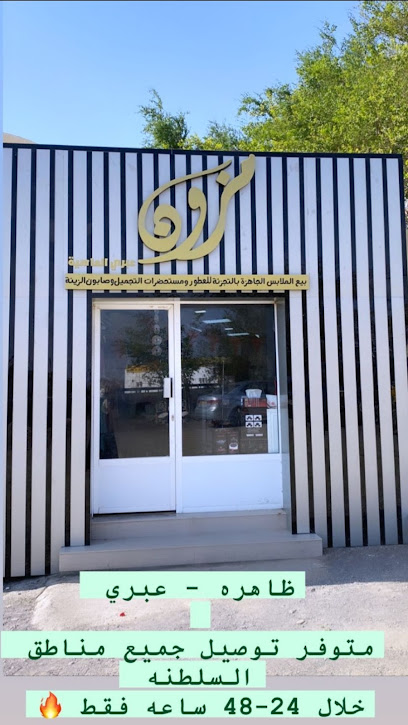
Fashion Nation
Explore Fashion Nation in Ibri for unique Omani gifts, local handicrafts, and fashion items that capture the essence of Oman.

SAQAR SHAMAL IBRI TRAD(للخياطة الرجالية)(Gents Tailoring), Al dhahirah, Ibri, Oman
Explore Saqar Shamal in Ibri for exceptional gents tailoring, blending tradition and modern fashion in a unique shopping experience.
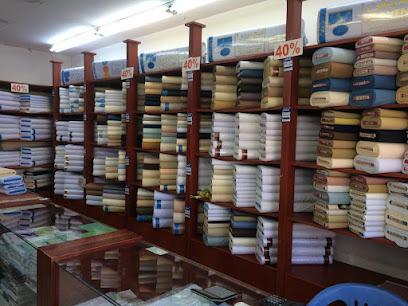
Essential bars & hidden hideouts
Aroos Damascus Restaurant & Grill
Savor the authentic flavors of Middle Eastern cuisine at Aroos Damascus Restaurant & Grill in Ibri, a must-visit for food lovers.
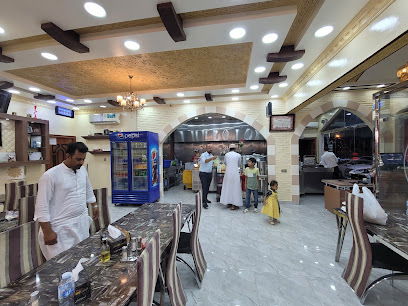
Pizza Hut
Savor delicious pizzas at Pizza Hut in Ibri, where comfort food meets a warm atmosphere, perfect for families and friends.
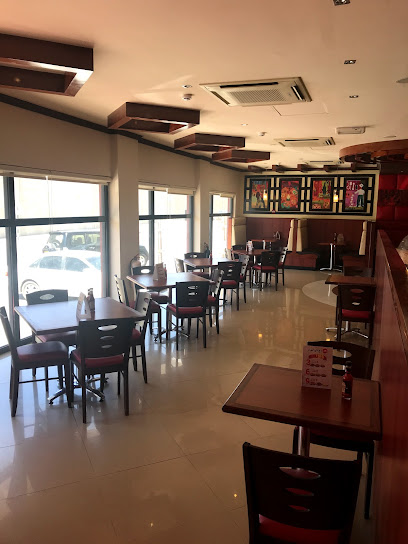
Noor Al Khaleej Restaurant
Discover the authentic taste of Oman at Noor Al Khaleej Restaurant, where traditional flavors meet warm hospitality in the heart of Ibri.
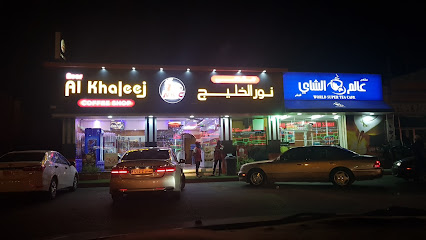
Arab World Restaurant مطعم العالم العربي
Experience authentic Middle Eastern flavors at the Arab World Restaurant in Ibri, Oman - a culinary journey awaits you.
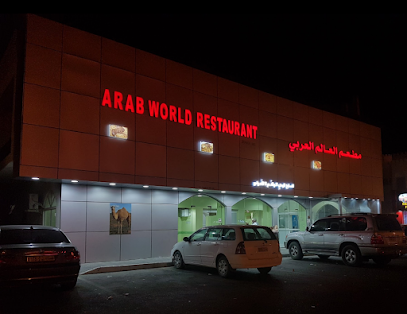
Turkish Restaurant
Savor the essence of Turkish gastronomy in Ibri's vibrant atmosphere, perfect for families and friends.
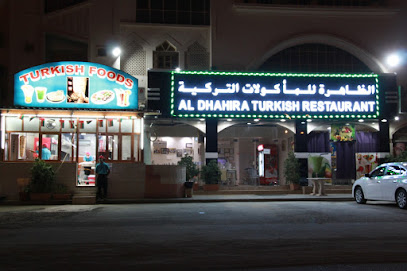
Ibri Oasis Hotel
Experience the vibrant spirit of Oman at Ibri Oasis Hotel, where comfort meets local charm in the heart of Ibri.
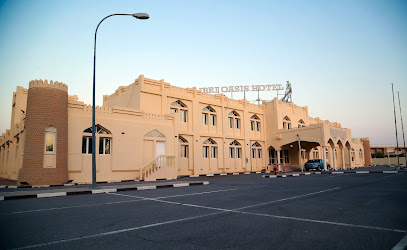
Almaslhi restaurant
Discover the authentic flavors of Oman at Almaslhi Restaurant, a must-visit culinary destination in Ibri, offering delicious dishes at affordable prices.
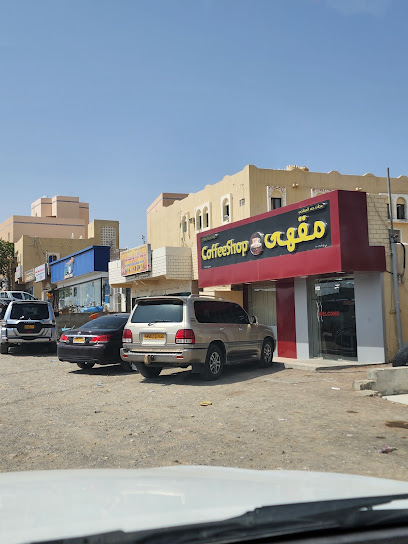
Al-Ghazal TURKISH Restaurant
Discover the authentic tastes of Turkey at Al-Ghazal Turkish Restaurant in Ibri, where every dish tells a story.
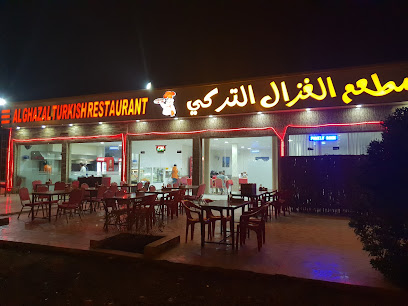
Al Majal Restaurant
Experience the rich flavors of Oman at Al Majal Restaurant, where local and international cuisines meet in a cozy dining atmosphere.
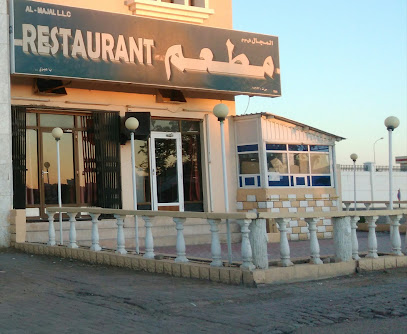
Bowl Fresh Restaurant
Experience the rich flavors of Asian cuisine at Bowl Fresh Restaurant in Ibri, where culinary excellence meets a welcoming atmosphere.
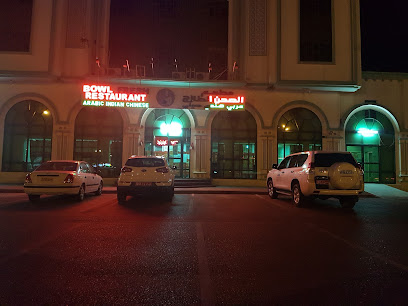
Tayibat Zam Zam Restaurant
Experience the rich flavors of Omani cuisine at Tayibat Zam Zam Restaurant in Ibri, where tradition meets taste in a welcoming atmosphere.
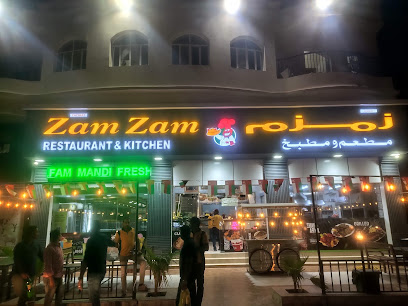
Alahjar Cafe Shisha
Experience the essence of Omani hospitality at Alahjar Cafe Shisha, where flavors blend and friendships flourish in a cozy atmosphere.
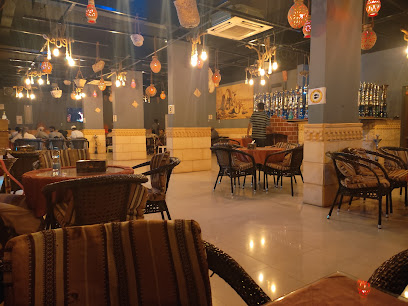
مذاق الدجاج المقلي Tasty fried chicken
Discover the ultimate fried chicken experience at Tasty Fried Chicken in Ibri, where flavor meets comfort in a welcoming atmosphere.
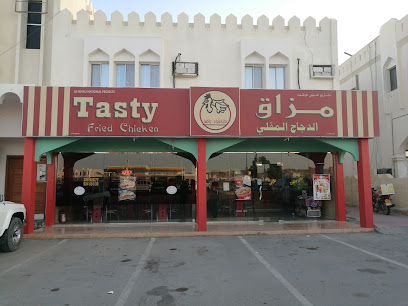
safdarabadi restaurant ibri oman
Experience the rich flavors of Omani cuisine at Safdarabadi Restaurant in Ibri, where tradition meets hospitality.
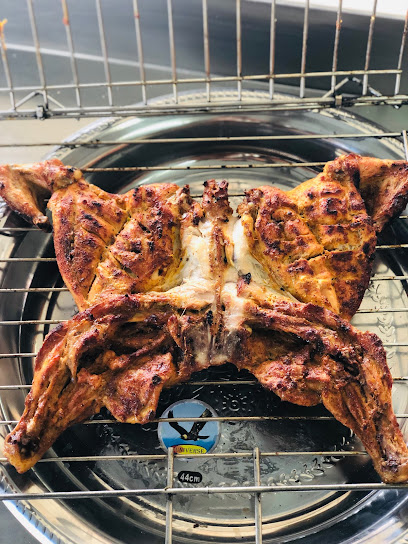
Chick 'N' Fille
Discover Chick 'N' Fille in Ibri, where crispy fried chicken meets local flavor in a vibrant and inviting setting, perfect for all food lovers.
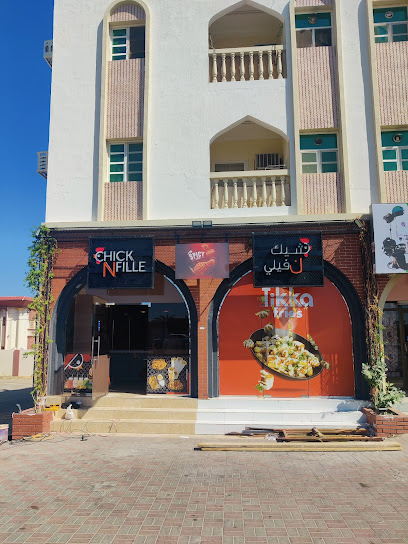
Local Phrases
-
- Helloمرحبا
[marhaba] - Goodbyeوداعا
[wadaea] - Yesنعم
[naam] - Noلا
[laa] - Please/You're welcomeمن فضلك
[min fadlik] - Thank youشكرا لك
[shukran lak] - Excuse me/Sorryعذرا
[athara] - How are you?كيف حالك؟
[kayf halak?] - Fine. And you?بخير. وأنت؟
[bakhir. wa'ant?] - Do you speak English?هل تتحدث الإنجليزية؟
[hal tatahadath al'inglizia?] - I don't understandأنا لا أفهم
[ana la afham]
- Helloمرحبا
-
- I'd like to see the menu, pleaseأريد أن أرى القائمة، من فضلك
[uriid an araa alqa'imat, min fadlik] - I don't eat meatأنا لا آكل اللحم
[ana la aakul allahm] - Cheers!في صحتك!
[fi sahtak!] - I would like to pay, pleaseأريد أن أدفع، من فضلك
[uriid an adfa', min fadlik]
- I'd like to see the menu, pleaseأريد أن أرى القائمة، من فضلك
-
- Help!النجدة!
[alnajda!] - Go away!اذهب بعيدا!
[idhab baedan!] - Call the Police!اتصل بالشرطة!
[iatisal bialshurta!] - Call a doctor!اتصل بالطبيب!
[iatisal bialtabib!] - I'm lostلقد ضللت الطريق
[laqad dalalt altariq] - I'm illأنا مريض
[ana mareed]
- Help!النجدة!
-
- I'd like to buy...أريد أن أشتري...
[uriid an ashtari...] - I'm just lookingأنا فقط أتطلع
[ana faqat atatalla] - How much is it?بكم هذا؟
[bikam hatha?] - That's too expensiveهذا غالي جدا
[hatha ghali jiddan] - Can you lower the price?هل يمكنك تخفيض السعر؟
[hal yumkinuk takhfid alsar?]
- I'd like to buy...أريد أن أشتري...
-
- What time is it?كم الساعة؟
[kam alsaa'a?] - It's one o'clockالساعة الواحدة
[alsaa'at alwahida] - Half past (10)الساعة العاشرة والنصف
[alsaa'at alashira walnisf] - Morningالصباح
[alsabah] - Afternoonالعصر
[aleaser] - Eveningالمساء
[almasa] - Yesterdayأمس
[ams] - Todayاليوم
[alyawm] - Tomorrowغدا
[ghadan] - 1واحد
[wahid] - 2اثنان
[ithnan] - 3ثلاثة
[thalatha] - 4أربعة
[arba'a] - 5خمسة
[khamsa] - 6ستة
[sitta] - 7سبعة
[sab'a] - 8ثمانية
[thamania] - 9تسعة
[tasia] - 10عشرة
[ashara]
- What time is it?كم الساعة؟
-
- Where's a/the...?أين الـ...؟
[ayna al...?] - What's the address?ما هو العنوان؟
[ma hu al'uan?] - Can you show me (on the map)?هل يمكنك أن تريني (على الخريطة)؟
[hal yumkinuk an tarini (ala alkharyata)?] - When's the next (bus)?متى يأتي الحافلة القادمة؟
[mata yati alhafilat alqadima?] - A ticket (to ....)تذكرة (إلى...)
[tadhkira (ila...)]
- Where's a/the...?أين الـ...؟
History of Ibri
-
Ibri, located in the Al Dhahirah region of Oman, boasts a rich history that dates back to ancient times. Archaeological excavations have unearthed evidence of human settlements that are thousands of years old. These ancient communities were known for their advanced skills in pottery, metallurgy, and agriculture. The remnants of these early civilizations can be seen in the form of forts, tombs, and other structures scattered across the region.
-
One of the most iconic landmarks in Ibri is its historic fortress. Built during the Yaruba dynasty in the 17th century, the fortress served as a stronghold to protect the area from invaders. The fortress features traditional Omani architectural elements, including watchtowers and defensive walls. Today, it stands as a testament to Ibri's strategic importance in Oman's history.
-
Ibri was a critical center for the ancient copper trade, which flourished in Oman thousands of years ago. The region's rich copper deposits attracted traders from across the Arabian Peninsula and beyond. Evidence of ancient mining activities can be found in the remnants of old mining sites and smelting furnaces. The copper trade not only boosted the local economy but also established Ibri as a significant hub in the trade network of the ancient world.
-
With the spread of Islam in the 7th century, Ibri underwent significant cultural and religious transformation. The construction of mosques and madrasas became a focal point for the community. Islamic architecture and art flourished, enriching the cultural landscape of Ibri. The town's markets and bazaars became bustling centers, reflecting the vibrant trade and cultural exchanges that characterized the Islamic period.
-
In contemporary times, Ibri has evolved into a thriving town that balances modern amenities with its historical heritage. It serves as an important administrative and commercial center in the Al Dhahirah region. The town's infrastructure has seen significant development, including roads, schools, and healthcare facilities. Despite these modern advancements, Ibri continues to preserve its rich cultural traditions, making it a fascinating destination for travelers.
Ibri Essentials
-
Ibri is located in the Al Dhahirah region of Oman. The nearest major airport is Muscat International Airport, approximately 270 kilometers away. From Muscat, you can rent a car or take a long-distance bus operated by Mwasalat to reach Ibri. The journey by car typically takes around 3 to 4 hours, offering scenic views of the Omani landscape.
-
Within Ibri, the most common modes of transportation are taxis and rental cars. Taxis are widely available and relatively inexpensive. There is no extensive public transportation system within the city itself, so renting a car can be a convenient option for exploring Ibri and its surroundings. For short distances, walking is also a viable option as many attractions are located close to each other.
-
The official currency in Oman is the Omani Rial (OMR). Credit cards are accepted in most hotels, restaurants, and larger shops, but it is advisable to carry cash for smaller establishments and local markets. ATMs are available throughout Ibri, so withdrawing cash is generally not an issue.
-
Ibri is considered a very safe destination for tourists. Crime rates are low, and violent crime is rare. However, it is always wise to take standard precautions such as avoiding poorly lit areas at night and keeping an eye on your belongings in crowded places. There are no specific neighborhoods in Ibri known for high crime rates targeting tourists.
-
In case of emergency, dial 9999 for police assistance, medical emergencies, or fire services. The local hospitals and clinics in Ibri are well-equipped to handle medical emergencies. It is recommended to have travel insurance that covers medical emergencies. Pharmacies are available for minor health issues and over-the-counter medications.
-
Fashion: Do dress modestly, covering shoulders and knees, as a sign of respect for local customs. Avoid wearing revealing clothing. Religion: Do respect local customs and traditions. Remove your shoes and cover your head when entering mosques. Public Transport: Do be respectful to drivers and other passengers. Taxis are the main form of public transport; negotiate fares beforehand. Greetings: Do greet people with a handshake and a friendly smile. Men may often greet each other with a light touch on the nose. Eating & Drinking: Do try local dishes and accept hospitality graciously. Don’t eat or drink in public during Ramadan, as it is considered disrespectful.
-
To experience Ibri like a local, visit the traditional souks where you can find local handicrafts, spices, and fresh produce. Engage with the locals; they are often friendly and eager to share stories about their heritage. Don’t miss visiting the Ibri Castle and the ancient beehive tombs at Bat, a UNESCO World Heritage site. For a unique experience, explore the nearby Jebel Akhdar mountains for breathtaking views and hiking opportunities.
Nearby Cities to Ibri
-
Things To Do in Bahla
-
Things To Do in Rustaq
-
Things To Do in Nizwa
-
Things To Do in Sohar
-
Things To Do in Al Ain
-
Things To Do in Muscat
-
Things To Do in Fujairah
-
Things To Do in Khor Fakkan
-
Things To Do in Dubai
-
Things To Do in Abu Dhabi
-
Things To Do in Sharjah
-
Things To Do in Ajman
-
Things To Do in Dibba Al-Fujairah
-
Things To Do in Umm Al Quwain
-
Things To Do in Ras Al Khaimah








